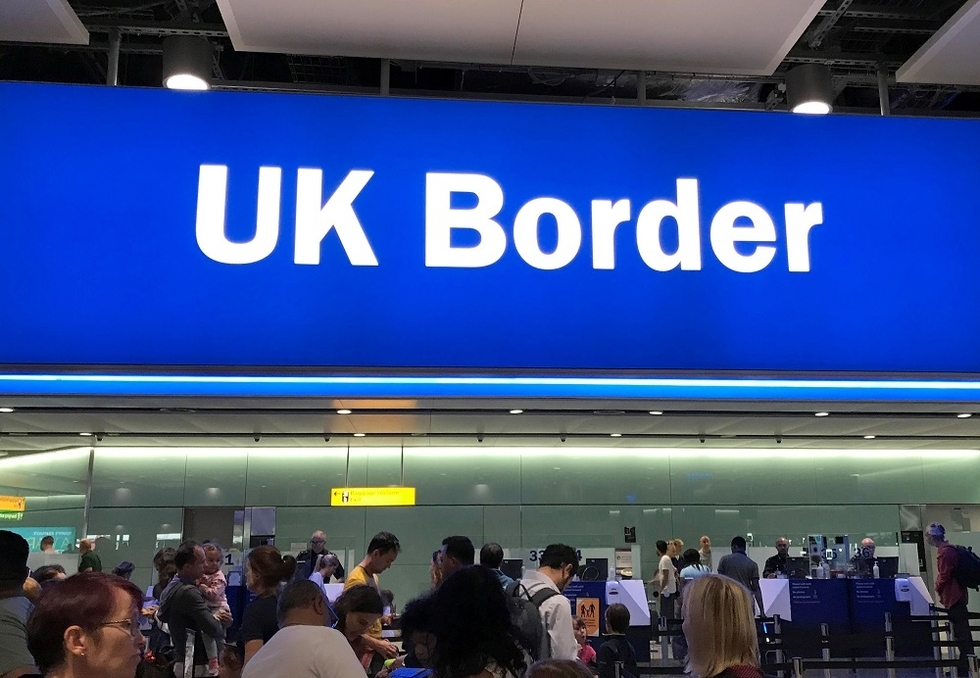Court rules British man stranded in Turkey was wrongly stripped of citizenship

Two men stripped of their citizenship by the British government on national security grounds were left stateless and must have their nationality rights restored, a court in London has ruled.
In a ruling published on Friday, judges at the Special Immigration Appeals Commission (SIAC) said that the British government had wrongly determined that the two men, who are identified only as E3 and N3 to protect their identities, were British-Bangladeshi dual nationals and could therefore be served with citizenship revocation orders.
Both of the men are from families with Bangladeshi backgrounds. One was born in Bangladesh and the other was born in in the UK. But the court ruled that both had lost their Bangladeshi citizenship when they were 21, and had never taken any positive action to keep it.
The SIAC ruling could have legal implications for many more cases involving British citizens who have been subjected to the highly controversial and legally contentious citizenship deprivation orders in recent years because of government concerns about the threat of suspected fighters returning from Syria.
One of the men, N3, said that he had been stranded in Turkey for more than a year by the case, and had been involved in aid work in the country helping Syrian refugees. E3's case is not understood to be Syria-related.
Speaking after the ruling was published, N3 said he was innocent of any wrongdoing.
“I feel that my country stabbed me in the back by removing my citizenship right after I left the UK last year to return to running my business and carrying out important aid work in Turkey,” he said.
“Hopefully now the courts will force the Home Office to stop taking people’s citizenship away without any right - it’s a practice that belongs to medieval times”.
The Home Office had cited “terrorism-related and national security grounds” for stripping both men of their citizenship.
But the orders can be issued on the basis of suspicion alone, with no requirement for the recipient to have been charged or convicted with any offence, providing that the Home Secretary deems that their presence in the UK is “not conducive to the public good” and doing so does not render them stateless.
Secret evidence
Lawyers say that SIAC cases are almost impossible to fight because citizenship revocation orders are usually issued when their recipients are out of the country.
In many cases, secret evidence obtained by intelligence agencies is used against appellants, which neither they nor their lawyers are allowed to see.
Middle East Eye last year reported on the cases of three British aid workers in Turkey and Syria who have been stripped of their citizenship. All three are appealing against the decision and their cases are ongoing.
The UK is widely considered to have the most extensive citizenship-stripping powers of any Western state, with lawyers and human rights campaigners comparing the process to “medieval exile”.
Some British nationals stripped of citizenship have subsequently been killed in drone strikes, and kidnapped and rendered to the US.
Moazzam Begg, the outreach director for Cage, a campaign group which advocates on behalf of people affected by counter-terrorism policies, said that the ruling was a “positive step forward”.
But he said: “It masks a larger systemic problem founded on the principle that dual nationals and those with an ancestral connection to another country are deemed second class citizens whose nationality can be revoked by an administrative decision.
“We continue to call for an end to citizenship deprivation as it violates the principles of equal citizenship.”
New MEE newsletter: Jerusalem Dispatch
Sign up to get the latest insights and analysis on Israel-Palestine, alongside Turkey Unpacked and other MEE newsletters
Middle East Eye delivers independent and unrivalled coverage and analysis of the Middle East, North Africa and beyond. To learn more about republishing this content and the associated fees, please fill out this form. More about MEE can be found here.




